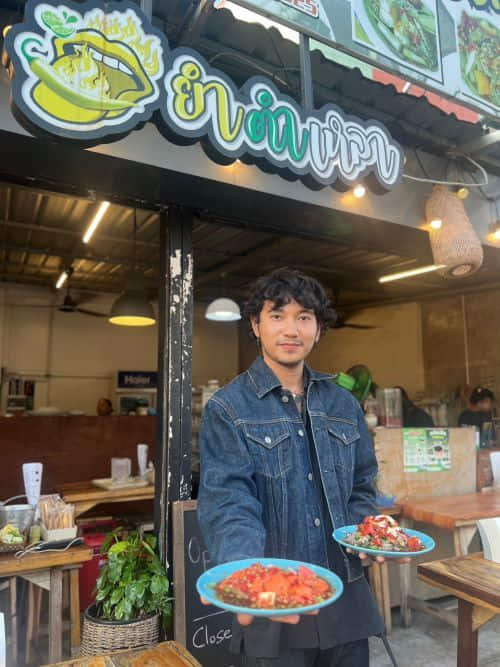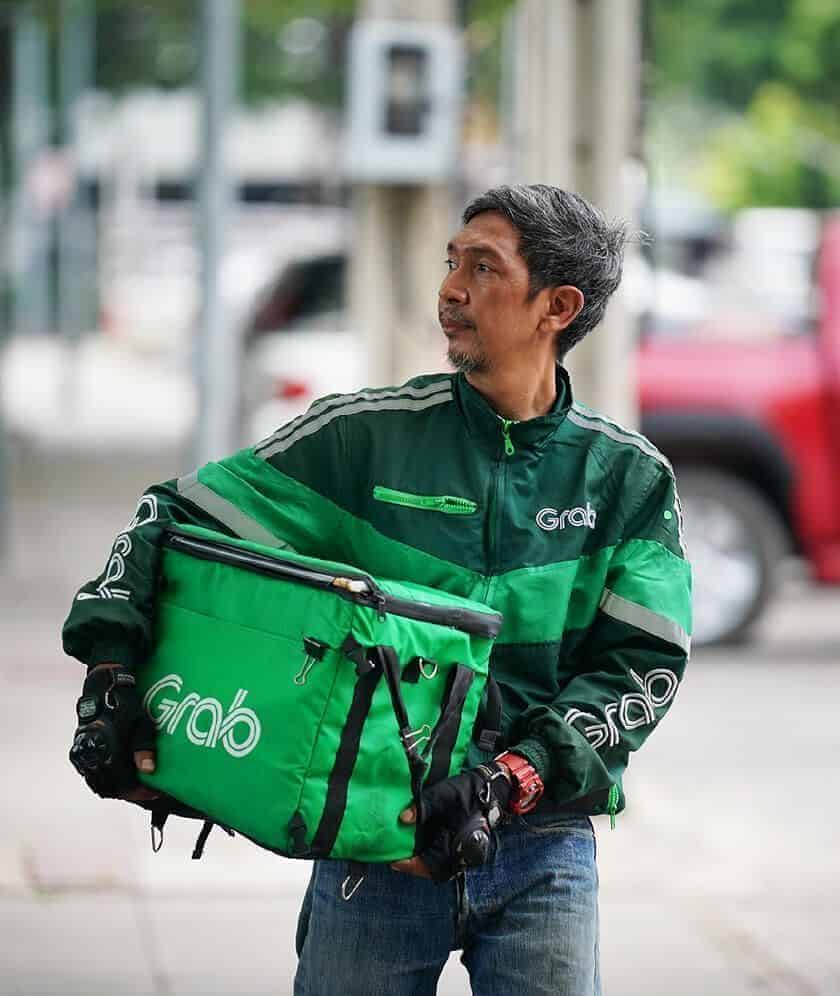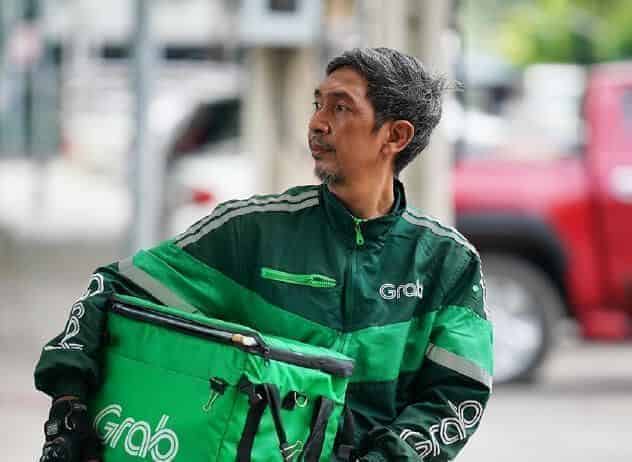In Southeast Asia, financial inclusion remains a critical challenge, particularly for gig-workers and micro, small, and medium enterprises (MSMEs). Traditional financial institutions often exclude these groups due to their lack of fixed incomes or credit histories. The options they have is to ask friends and family for money—or turn to money lenders with high interest rates.
Thus, people who have small or irregular incomes can end up paying more to access a loan than someone with a full salary. That’s an example of financial inequality.
It’s a complex challenge to overcome, but digital platforms like Grab offer pathways to closing the gap: 1) By leveraging data to serve a clientele that tends to be overlooked by the formal banking system; and 2) with a number of events and offerings geared towards the financial literacy of Grab’s driver- and merchant-partners.
Indeed, with a variety of loan products tailor-made for this clientele, our loan disbursals increased 57% year-on-year to USD 1.5 billion in 2023, as per Grab’s just-released ESG report.
Grab’s initiatives for financial inclusion
We can extend these loans to a clientele without a formal credit history and with flexible incomes, by leveraging the extensive data from millions of transactions on Grab’s platform. This allows us to assess the creditworthiness of our partners.
Grab offers various financial products specifically designed for gig-workers, including emergency cash loans, and product-based loans. The former is often used for medical treatments for themselves or their families, or vehicle repairs and upgrades, says Beng How Toh, head of driver-partner lending at Grab. The latter is designed to facilitate the purchase of essential items like smartphones, or household appliances. If driver-partners have to save up before they can repair their vehicles or smartphones, they could miss out on earnings and end up in a downward spiral. With access to Grab’s microloans, they can quickly return to earning an income.
Grab ensures that gig-workers do not incur more debt than their expected income by applying stringent eligibility criteria and borrowing caps. This approach allows for manageable repayment schedules. Repayments are structured with deductions from the drivers’ earnings, making the process seamless and stress-free. This system not only provides immediate financial relief but also helps build a financial history for these workers—which potentially makes them eligible for future access to bigger-ticket credit, for example from one of Grab’s digital banking partners.
Notably, one in three active driver-partners has already taken out a loan through Grab, which speaks to the usefulness of these products.
“For many of our driver-partners, taking a loan from Grab is their very first loan from a formal institution,” says Darren Lee, regional programme manager for driver-partner loans at Grab.
But gig-workers aren’t the only ones benefiting from Grab’s lending portfolio. Our research has found that 60% of MSMEs that need financing also struggle to obtain loans from traditional sources. Grab’s Merchant Cash Advance product has been instrumental in supporting small businesses across Thailand, Indonesia, and the Philippines. By providing flexible and affordable business loans, Grab helps MSMEs improve cash flow and invest in growth.

Financial empowerment beyond loans
True financial inclusion requires more than mere access to loans. It includes fostering financial literacy, so that each individual understands the financial products offered to them, and how to make the right financial decisions when planning for the future.
Grab takes measures to ensure driver-partners have access to information and understand the various financial products available to them.
“We play an important role in explaining how a loan works and how repayment works,” says Lee.
Besides loans, Grab also offers micro-insurances that can cover driver-partners and their families against accidents, and other mishaps. Imparting the precise way these products work and how an individual might benefit from them requires deliberate communication. “We do this through in-app discovery and inbox messages, along with SMS.”
“We also do roadshows and offer workshops in conjunction with driver-partner events in different cities,” adds Toh. “We explain the advantages of our products over other options by looking at things like no late fees and non-compounding interest.”
Grab’s financial products were designed to be as simple as possible, which helps build trust. Hands-on education at roadshows and events helps driver-partners understand the benefits and potential pitfalls of different financial products, equipping them with the knowledge to avoid predatory lending practices.
One of the critical aspects of Grab’s strategy is also to integrate gig workers into existing government social security programmes.
Often, these groups lack awareness of such opportunities. Grab contributes to the education and facilitates sign-ups of its eligible driver-partners.
(Read more: Grab Philippines’ Pag-IBIG partnership helped thousands of gig-workers start saving for their future)
Building a financial ecosystem
Some merchant-partners and driver-partners might eventually be eligible for more sizable loans. Grab’s strategy to serve this need has been to partner with digital banks in the region.
“These loans from our digital bank partners can be longer-term, and cover larger sums. An example could be for house renovations, and things that just require a larger sum up front,” explains Toh.
In summary, financial empowerment through Grab follows a holistic approach. It makes a variety of financial products available to a group of people that’s underserved by traditional financial institutions, and encompasses education about financial products and the broader range of social security programmes available to them. This approach is designed to encourage marginalised groups to achieve greater economic stability and growth.
“We will certainly continue to grow our financial product offering to help more driver-partners and MSMEs in the coming year,” says Lee.
3 Media Close,
Singapore 138498
Komsan Chiyadis
GrabFood delivery-partner, Thailand
COVID-19 has dealt an unprecedented blow to the tourism industry, affecting the livelihoods of millions of workers. One of them was Komsan, an assistant chef in a luxury hotel based in the Srinakarin area.
As the number of tourists at the hotel plunged, he decided to sign up as a GrabFood delivery-partner to earn an alternative income. Soon after, the hotel ceased operations.
Komsan has viewed this change through an optimistic lens, calling it the perfect opportunity for him to embark on a fresh journey after his previous job. Aside from GrabFood deliveries, he now also picks up GrabExpress jobs. It can get tiring, having to shuttle between different locations, but Komsan finds it exciting. And mostly, he’s glad to get his income back on track.

